By Jon Diamond
The “Mythology of Munich” and “What Would Winston Do?” These were the feature story and the cover headline, respectively, for the June 23, 2008, issue of Newsweek magazine.
Yet, approximately 75 years removed from the beginning of Britain’s appeasement policy, firsthand knowledge of the principal but less famous British diplomats and politicians in this tragedy becomes diluted by the repetition of certain names, such as Prime Minister Chamberlain, Lord Halifax, Foreign Secretary Anthony Eden, and Prime Minister Winston Churchill, among others.
An awareness of the views of some of England’s less famous participating elite, in their own words, requires a deeper examination of the contents of many of the nearly 75-year-old published memoirs, diaries, and letters, which, at times, have become subjected to the ravages of revisionism, distortion, lack of context, and frank omission.
“Purbline Feebleness”
The principal cast of important but lesser-known British politicians and diplomats during the 1930s either recognized the menace of Nazi Germany or were at odds with one another in regard to a central theme, namely, Britain’s coexistence with Nazism as possible and perhaps even desirable.
Appeasement has been aptly summed up by William Manchester at the conclusion of his second volume of Winston Churchill’s biography, The Last Lion: “Because their possessions were great, the appeasers had much to lose should the Red flag fly over Westminster. That was why they had felt threatened by the hunger riots of 1932. It was also the driving force behind their exorbitant fear and distrust of the new Russia. They had seen a strong Germany as a buffer against Bolshevism, had thought their security would be strengthened if they sidled up to the fierce, virile Third Reich. Nazi coarseness, anti-Semitism, the Reich’s darker underside, were rationalized; time, they assured one another, would blur the jagged edges of Nazi Germany.”
According to Ian Kershaw, one of Hitler’s biographers, “Appeasement now seemed not an honest search to prevent a second Armageddon and avoid the collapse of Britain’s power and prosperity as a nation but simply the purblind feebleness of politicians unwilling to stand up to an evil dictator, a badge of shame in the nation’s history.”
Another dark side of appeasement during the 1930s was that the government of King George VI believed that there were some things the country and its population ought not to know and that their policy of duplicity would be vindicated in the end. To foster this approach the reports from the British ambassadors in Berlin and their London-based Foreign Office counterparts were often ignored. This is in stark contrast to other private citizens or politicians who were quite zealous in creating informal conduits of communication between the Nazis and the London government in order to tout the virtues of a revitalized Germany and in the process sincerely attempt to make themselves “friends with Hitler” and his henchmen.
A succession of three British prime ministers held the predominance of power: first Ramsay MacDonald, then Stanley Baldwin, and for the last two and one-half years of peace, Neville Chamberlain. At first, these prime ministers held a majority in the House of Commons and controlled their cabinet ministers so that warnings of looming danger were never made public. With each crisis from 1935 onward, this triumvirate in No. 10 Downing Street was unable to contemplate the possibility of war because of Britain’s weakness in defense, especially in the air.
With the passage of each crisis, they and their ministers again convinced themselves that the danger was distant, and they failed to take measures that were being urged upon them, often by their own expert civil servant advisers in the Foreign Office. Put succinctly, this was a paramount failure of leadership because the government duped the British people into thinking that with the outbreak of war near and the country inadequately defended confronting Hitler with an antagonistic or militant posture was not an option. For the government to perpetrate this deceit, the few professionals in Britain’s Berlin embassy and its Foreign Office sounding the warning bells about Hitler’s motives and his open atrocities against certain elements of the German citizenry had to be silenced.
The “Anti-Appeasement Faction”
From 1933 to 1939, those who recognized and did not blind themselves to how near Britain was coming to destruction were few in number, and most of them constrained by their official positions. Sir Horace Rumbold, Sir Eric Phipps, Sir Robert Vansittart, Ralph Wigram, and others composed this small group in the Berlin embassy and at the Foreign Office. As an “anti-appeasement faction” within the Foreign Office and as individuals, this group provided Churchill with direct insight and keen information about the growing Nazi juggernaut.
However, as diplomats and civil servants, their job was to advise on policy, not to make it, nor to change it; and when their advice went unheeded, there was little they could do. Vansittart, as the permanent under-secretary of state, Foreign Office, struggled on until Chamberlain orchestrated his removal from that position. Wigram, who was Vansittart’s immediate subordinate in the Central Department at the Foreign Office, was likewise powerless, although he used unorthodox methods, including direct and secret contact with Churchill, in order to galvanize public opinion. He later was overcome by severe depression and eventually committed suicide.
What Vansittart and Wigram, in alliance with their very public champion, Churchill, did finally achieve was a gradual and total acceptance by the British people that Hitlerism was evil and would ultimately have to be resisted. They also established that Churchill himself was the man whose personal authority, knowledge, and strength of character would be able to lead Britain through a most terrible and desperate war.
But what of the now almost forgotten British ambassadors to Berlin during the appeasement decade? Sir Horace Rumbold was born in 1866 and educated at Eton. Immediately before the outbreak of World War I, he served as an attaché in Berlin, and from 1928 through 1933 he was the British ambassador to Germany. Toward the end of his tenure as ambassador, in March 1933, Adolf Hitler became chancellor and Rumbold, having been in Berlin during the first five months of Hitler’s rule, was one of the initial witnesses to the Nazi leader’s prompt imposition of brutal policies on a Germany still reeling from years of civil unrest and the Weimar Republic.
German trade unions were made illegal in the spring of 1933, with imprisonment for many of their leaders. Rumbold was aware that “large concentration camps were being established in various parts of the country.” Fervent, officially sanctioned anti-Semitism became publicly evident with a one-day boycott against Jewish shops and professions on April 1, 1933. Jews were threatened and often beaten in German streets.
The forceful tone of Rumbold’s many dispatches echoed in the Foreign Office in London. On April 11, 1933, Rumbold wrote to a diplomatic colleague: “Everything shows that this Nazi revolution has brought out some of the worst characteristics in the German character, namely, a mean spirit of revenge, brutality amounting in many cases to bestiality, and complete ruthlessness. The atmosphere here is thoroughly unpleasant … Nobody feels himself safe or able to talk or write freely.”
Mein Kampf: Foreshadowing Evil
In England, the stories of brutality were listened to with incredulity. London refused to believe its own diplomatic eyewitnesses.
Rumbold lamented, “foreign opinion does not appear to have fully grasped the fact that the National-Socialist party program is intensely anti-Jewish. The imposition of further disabilities … must therefore be anticipated, for it is certainly Hitler’s intention to degrade, and if possible expel the Jewish community from Germany.”
Rumbold did not tolerate attempts to whitewash the regime. He had made up his mind that it was evil, and he repeated his views in every dispatch. He wrote: “One of the most inhuman features of the present campaign is the incarceration without trial of thousands of individuals whose political antecedents have rendered them obnoxious in the eyes of the new regime. The establishment of concentration camps … on a wholesale scale is a new departure in civilized countries.”
By reading Mein Kampf, Rumbold, who was fluent in German, claimed that the evils of the regime were easily forecast in Hitler’s manifesto. Hitler, he insisted, was not a moderate man. Rumbold was uncompromising on foreign policy. Even before he met Hitler, he wrote, “Germany’s neighbors have reason to be vigilant.”
Rumbold’s attitude hardened even further after he met Hitler. He no longer doubted “that Herr Hitler is himself responsible for the anti-Jewish policy … It would be a mistake to believe that it is the policy of his wilder men whom he has difficulty in controlling.”
Rumbold stressed the abnormality and probable permanence of Nazism. Hitler, Göring, and Goebbels were three “notoriously pathological cases … One looks in vain for any men of real worth” among the leaders.
Rumbold viewed the future, as he left his post at the age of retirement in June 1933, “with great uneasiness and apprehension.… It would be misleading to base any hopes on a return to sanity.… Unpleasant incidents and excesses are bound to occur during a revolution, but the deliberate ruthlessness and brutality which have been practiced during the last five months seem both excessive and unnecessary. I have the impression that the persons directing the policy of the Hitler Government are not normal. Many of us, indeed, have a feeling that we are living in a country where fantastic hooligans and eccentrics have got the upper hand.”
Rumbold saw everything. Sir Robert Vansittart noted, “Little escaped him and his warnings were clearer than anything we got later.”
On May 6, 1933, Vansittart commented on one of Rumbold’s dispatches: “The present regime in Germany will, on past and present form, loose off another European war just as soon as it feels strong enough.”
Ambassadors to Germany: Outspoken Opponents of Appeasement
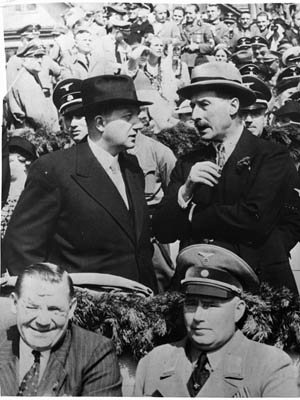
The British ambassadors in the Berlin embassy sadly disappointed the appeasers. Rumbold had reported details and convictions that the appeasers were unwilling to hear. In 1933, he had informed his government, “It would be misleading to base any hopes on a serious modification of the views of the Chancellor and his entourage. Herr Hitler’s own record goes to show that he is a man of extraordinary obstinacy.”
On June 13, 1936, the now former ambassador Rumbold wrote, “Now Hitler has quite consistently applied the principles of Mein Kampf in Germany herself. He has now got to apply them in his foreign policy and that’s where the trouble is coming.”
Sir Eric Phipps replaced Rumbold in the summer of 1933. He was born in 1875 and educated at Cambridge. Phipps, who had at first believed Hitler could be reasoned with, changed his views completely during the course of his four years as ambassador. Phipps had told an American diplomat, William Bullitt, that he considered Hitler “a fanatic who would be satisfied with nothing less than the dominance of Europe.”
After Phipps followed Rumbold as ambassador in Berlin and became an equally outspoken opponent of Nazism, Prime Minister Stanley Baldwin on May 24, 1936, asked his close friend Thomas Jones: “What are we to do?”
Jones replied: “If it is our policy to get alongside Germany, then the sooner Phipps is transferred elsewhere the better. He should be replaced by a man … unhampered by professional diplomatic tradition, able of course to speak German, and to enter with sympathetic interest into Hitler’s aspirations.”
No truer words were spoken.
A Sympathizer in Berlin
On June 1, 1937, Sir Nevile Henderson, who had become British ambassador to Berlin in May, spoke in Berlin of British attitudes to Nazism: “Far too many people have an erroneous conception of what the National Socialist regime really stands for. Otherwise, they would lay less stress on Nazi dictatorship and much more emphasis on the great social experiment which is being tried out ….”
Henderson was educated at Eton and joined the foreign service in 1905. He actually served under Rumbold in Constantinople in 1920. In 1937, he was recalled from Argentina to become ambassador to Germany, a post he held until the outbreak of war in September 1939.
A marked departure from standard communication channels between the British embassy in Berlin and London developed soon after Neville Chamberlain succeeded Stanley Baldwin as prime minister in 1937. Henderson openly circumvented the anti-appeasement civil servants at the Foreign Office and began to directly furnish the prime minister with letters and visits in order to render his personal views on how policy with Nazi Germany ought to be conducted.
At the Foreign Office, Vansittart noted, “I am afraid Sir Nevile’s forecasts of the future are quite wrong and I am ready to bet him any sum that Germany will not settle down into a satisfied European.”
In March 1938, Vansittart disagreed with Henderson’s estimate that Hitler was ready to risk war over Austria. Vansittart thought the attitude of Hitler contained a great deal of bluff. Germany was in no condition to risk or endure general war. The risk was rather that Germany would bluff itself into big adventure and general conflagration by thinking that she could bluff everyone else.
According to Vansittart’s memoirs, “Sir Nevile Henderson was an emotional man. Tall, lean, fastidiously dressed, he had the outward points of a British diplomat without any inner strength. His staff complained of him that he showed a bullying temper to his subordinates and he had left behind him an unpopular reputation in the Argentine. I had met him once or twice between November 1937 and the spring of 1938 when his main theme was that German aims were limited. His staff did not share his widespread opinion that as soon as Germany had obtained its demands on behalf of Germans abroad, Herr Hitler would settle down as a peaceable European. But such was the conviction that Henderson put forward to me before and after the invasion of Austria. Not one of the British and American journalists who then observed the Berlin scene shared the view of the Ambassador, and none of his staff supported it.”
Another erroneous position taken by Henderson was in regard to rearmament. Henderson wrote from Berlin on March 9, 1939, well after the Munich crisis, “So long as we go quietly on with our own defense preparations all will, in my opinion, be well. I believe the Germans want peace very badly, but it is just as well to remove temptation. I wish we could rearm a little more quietly, but I suppose democracy is a bar to that. People in England are too much under the impression that Germany wants war.”
Londonderry and Lothian: Private Appeasers
Baldwin and Chamberlain were not the only prominent members of the British ruling class who tried to both alter the harsh criticism emanating from Rumbold and Phipps in their embassy in Berlin and to discredit the anti-appeasement faction in the Foreign Office by appointing Henderson as ambassador. Two powerful men, Lord Londonderry and Lord Lothian, personally attempted to solidify friendly relationships with Hitler and his henchmen in order to placate the British public into accepting a more tolerant approach to the brutal excesses of Nazi Germany. These individuals were, thus, de facto “unofficial ambassadors” to Hitler.
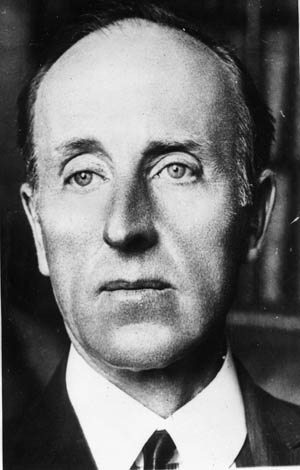
Appeasers such as Londonderry and Lothian rejected the alarms raised by Rumbold and his successor, Phipps. The appeasers believed that war was not inevitable. They faulted the hostility of men such as Phipps as a barrier blocking Anglo-German rapprochement. Hitler told Lord Londonderry that he “could not stand the looks of Sir Eric and would like nothing more than to see him replaced by a more modern diplomat who showed, at least, some understanding of the changes which had taken place in Germany.”
Lord Londonderry (nee Charles Stewart Henry Vane-Tempest-Stuart) was born in 1878. He was educated at both Eton and Sandhurst. He was a Conservative member of Parliament from 1906 to 1915 and then secretary of state for air from 1931 to 1935. He had headed the British delegation to the disarmament conference in Geneva in 1932. As a private citizen, he began meeting with the Nazi leaders in 1936. He developed a strong friendship with Germany’s ambassador to Great Britain, Joachim von Ribbentrop, who often stayed with him on his visits there.
Lord Londonderry wrote to Ribbentrop in 1936: “As I told you, I have no great affection for the Jews. It is possible to trace their participation in most of those international disturbances which have created so much havoc in different countries.”
“Common Cause”
Among his English friends, Ribbentrop found Lord Londonderry one of the most appreciative of German fears of communism, and not without fears of his own. Londonderry had no objection to Ribbentrop’s scheme of persuading Britain to “make common cause” with Germany “in fighting communism.” He further stated, “the anti-communism platform was…invaluable; and I am quite sure that if we could have gone forward and made Germans understand that while we deprecated and in fact condemned a great deal of what they were doing, still they could rely on us to be whole-heartedly associated with them in their attitude towards communism.”
In 1938, Lord Londonderry reflected on Hitler’s coming to power: “Herr Hitler restored the sense of national pride and self-respect. He carried out his program in the face of tremendous difficulties which had assailed his country —of being defeated, of suffering acute privation, of passing through various stages of political revolution, of having an army of occupation within the German frontiers for a decade, and finally of being disappointed and refused a fair hearing in the councils of Europe. On becoming Chancellor in 1933, Herr Hitler challenged these disabilities; and by his example and inspiration he inculcated in the people he was leading the spirit of self-respect and the desire for equality with other nations in their rights and responsibilities.”
After Hitler’s entry into the Rhineland, Londonderry and Lothian were reported to have sent a letter congratulating the Nazi leader on his success. In December 1937, Londonderry, who sympathized with German colonial claims, explained to a friend that even appeasement could be realistic when it cared to be: “I am very anxious lest by our conciliatory attitude and our desire to see justice done to Germany all the German desires will take the form of grievances, which when the Germans are strong enough, they will seek to enforce by force of arms.… I should like to see our Government undertaking a bold policy based on limitation of armaments and the according to Germany of the position … she should occupy in international affairs.”
After the signing of the Munich agreement in September 1938, Londonderry wrote, “Let us hope that the signing of this declaration not only opens up a prospect of more friendly and secure Anglo-German relations than have existed at any time since the War, but let us hope, too, that it also may rank merely as a prelude to the greater settlement of all the outstanding international differences in Europe.”
The reoccupation of the Rhineland in March 1936 and the threat to Czechoslovakia in September 1938 were two occasions when Britain and France should have challenged Hitler. Instead, Londonderry supported and defended the German action on both occasions and would not have entertained the idea of British military intervention.
As noted by Kershaw, “Londonderry’s own formula for handling Germany was misconceived, misguided, and mistaken on all counts. Londonderry was well intentioned and sincere in his attitude towards Nazi Germany. But it is impossible to avoid the conclusion that he was extremely naïve in his political views and gullible in his readiness for so long to place his trust in Hitler and in presumed German peaceful objectives.”
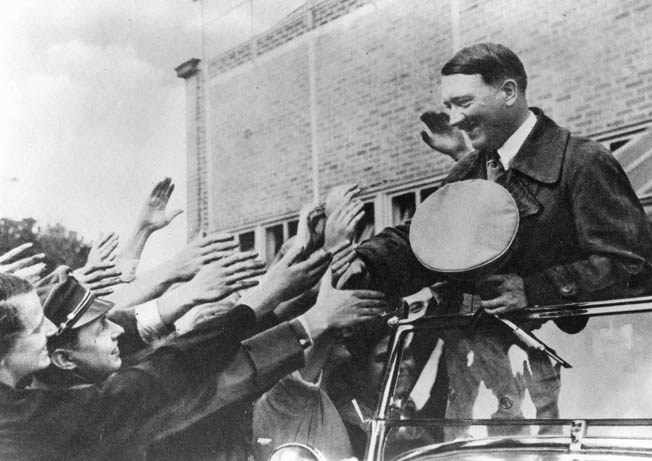
Lothian’s Naïveté
Lord Lothian (nee Philip Henry Kerr) was born in 1882. After being educated at Oxford, he was private secretary to Prime Minister David Lloyd George from 1916 to 1921 and, thereby, very influential in the drafting of the Versailles Treaty.
In May 1935, Lord Lothian wrote, “National Socialism in its brutal aspects, both at home and abroad, is in considerable measure due to the fact that her neighbors were not able to make reasonable revisions in the treaties as war passions died down.”
Lord Lothian regarded a disarmed Germany as one of the bad legacies of Versailles and saw no security, as far as Europe was concerned, in a weak Germany bordering upon a strong France. Lothian knew Anglo-German cooperation would annoy the anti-appeasement faction at the Foreign Office, since he correctly viewed Vansittart and his colleagues as Francophiles. Also, Lothian regarded Anglo-German friendship as necessary to balance Franco-Russian dominance in Europe.
Lothian first visited Hitler in 1935. He was given a lecture on the evils of communism. In return he informed Hitler that he “did not rule out” a change in the political status of Austria. Hitler spoke of Anglo-German cooperation as one of the things he had always hoped would come about. Lothian said he would tell Baldwin that Britain and Germany ought to begin conversations “with a plan designed to stabilize Europe for 10 years.” Hitler thanked Lothian for his kindness.
On his return, Lothian reported that his chief impression had been that “here was a chance of a political settlement which would keep the peace for 10 years.”
“The central fact today,” Lothian wrote to The Times of London, “is that Germany does not want war and is prepared to renounce it absolutely as a method of settling her disputes with her neighbors.”
Here was the trust in Hitler’s word that the appeasers believed both necessary and wise. Behind it lay the feeling that Britain had been unfair to Germany in the past and would make a grave mistake if she persisted in her unfairness. Nazi brutality, Lothian told a friend, was “largely the reflex of the external persecution to which Germans have been subjected since the war.”
Lothian met Hitler a second time in May 1937 and told him that “Britain had no primary interests in Eastern Europe.”
The American ambassador to Berlin, William Dodd, wrote, “Lothian praised Hitler for saving Germany in 1933.… His hatred of France was revealed twice.… I could hardly make out just where he belonged in European alignments. He seemed to be more a Fascist than any other Englishman I have met. Recent English criticism of Italy and especially Germany with reference to their barbarism in Spain bothered him.”
Dissillusionment with Appeasement
Although Lothian’s country estates were often the meeting places for many prominent British appeasers, he began to see the folly of this strategy after Munich and admitted to Vansittart that he had been wrong in his assessment of German aims. Just prior to the outbreak of World War II, Lothian urged Halifax to bring Churchill into the government and to mobilize the Royal Navy as a show of British strength to the Nazis.
Unfortunately, Lothian’s new approach, as well as his more serious opinion of Hitler, came too late. In May 1939, he wrote, “In the last few months I have been driven to the conclusion that the organization of resistance to Hitler is the necessary preliminary to a real settlement.”
It is clear that during the appeasement decade British politicians wanted to see Germany once more an equal partner in Europe, perhaps, to be a sentinel against the spread of Bolshevism. For those Britons who desired an Anglo-German accord, the Nazi program of internal violence against Jews, Socialists, intellectuals, clergy, union leaders, and others could be justified. After all, had not Hitler preached that his foreign policy was one of friendship with Britain and peace in Europe?
The ruling British elite and their unofficial ambassadors were gullible as the warnings from men like Rumbold, Phipps, Wigram, and Vansittart became progressively muted by political pressure from both Baldwin and Chamberlain.
The end of the Chamberlain appeasement government came, according to Manchester in Churchill’s biography, “when the House of Commons, in a revolt of conscience, wrenched power from them and summoned to the colors the one man who had foretold all that had passed, who had tried, year after year, alone and mocked, to prevent the war by urging the only policy which would have done the job. And now, in the desperate spring of 1940, with the reins of power at last firm in his grasp, worthy of all they had been and meant, to arm the nation, not only with weapons but also with the mace of honor, creating in every English breast a soul beneath the ribs of death.”
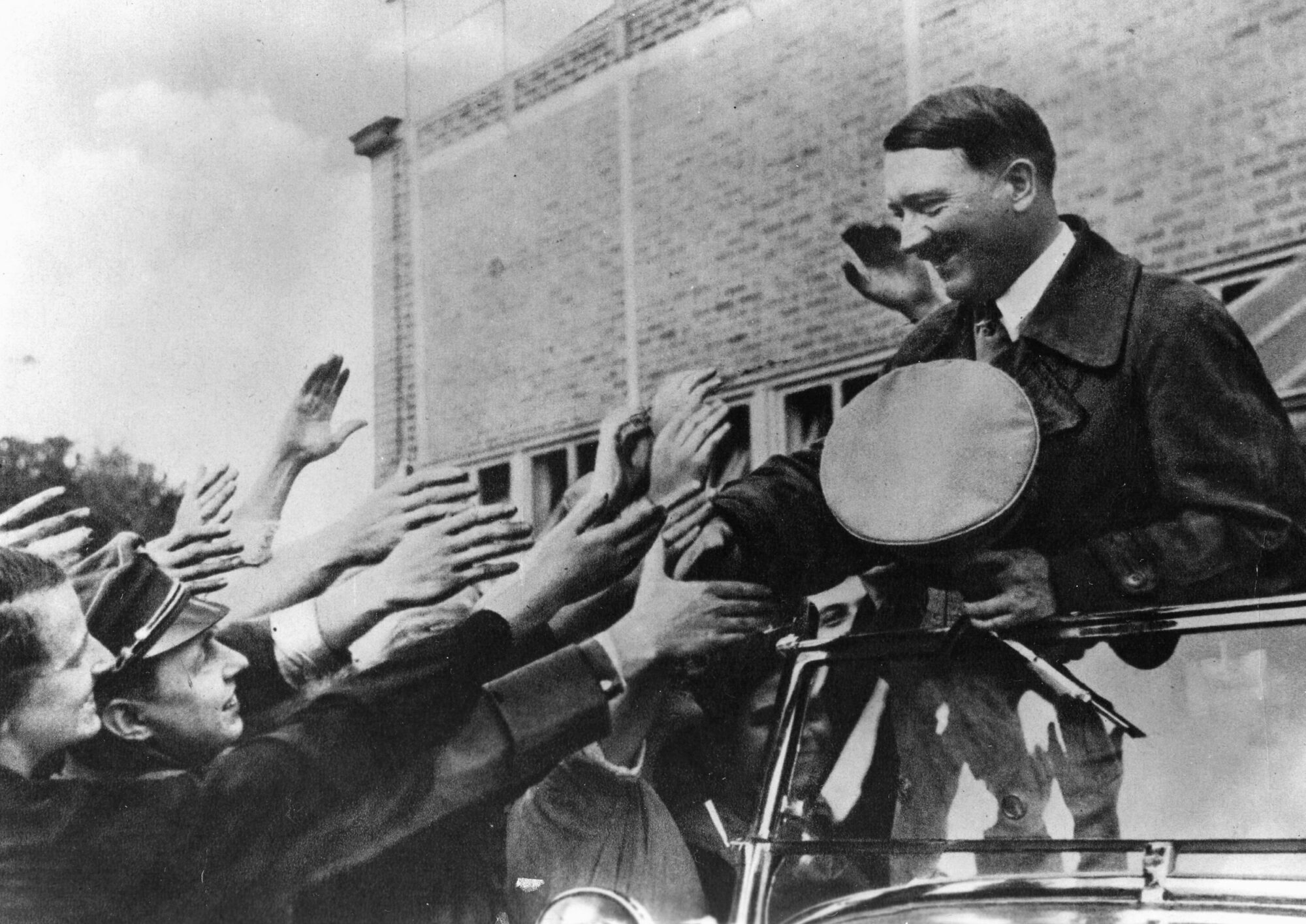


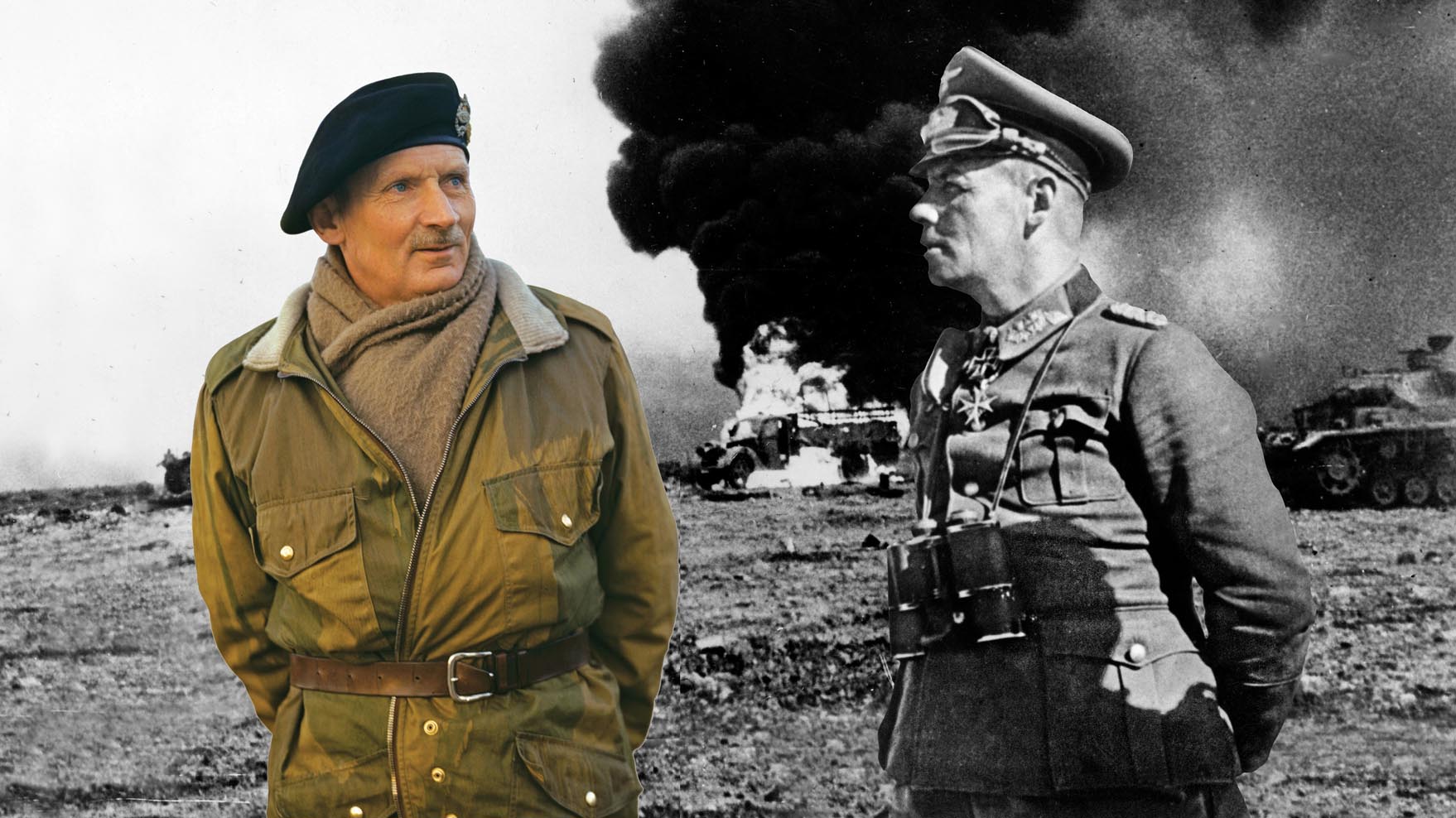
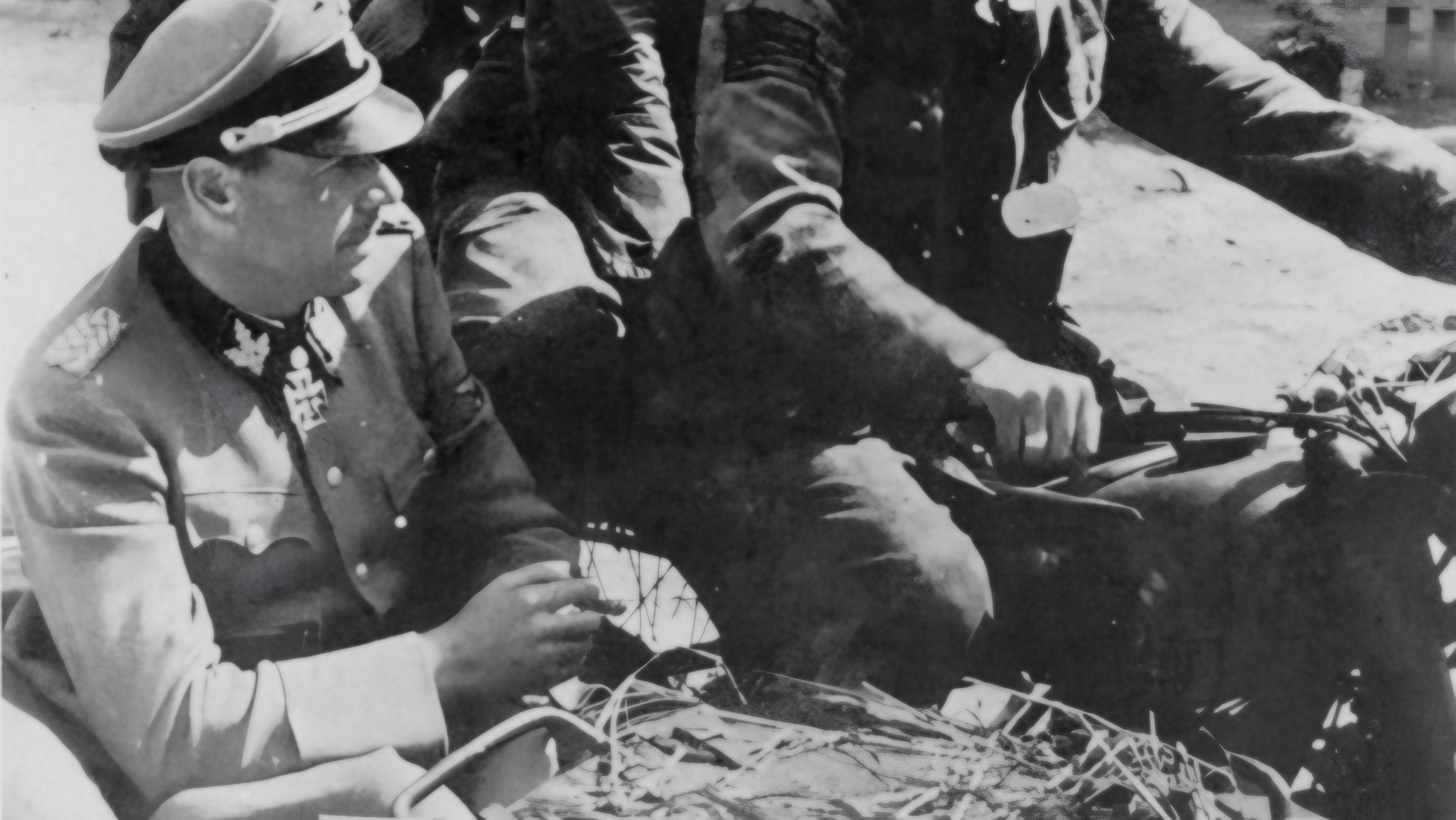
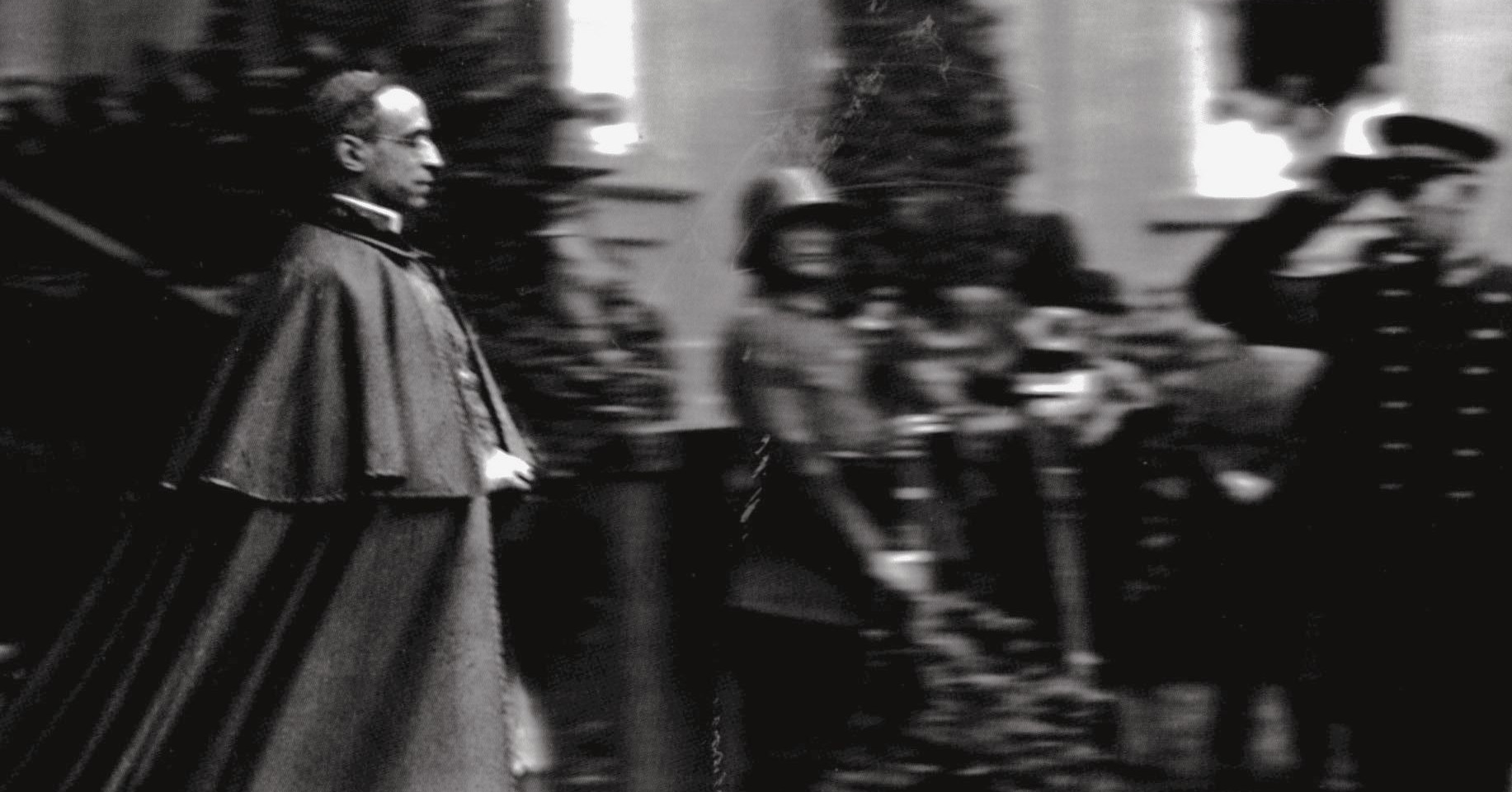



The appeasement policy of the late 1930s has been much maligned, ever since being associated with a weak kneed, insipid response to a bullying situation. The Anglo-French appeasement policy was, however, a rational response to an impossibly difficult situation. The alternative to appeasement was an alliance with communist Russia against Nazi Germany, but this alternative was fraught with risk. Hitler had a genuine admiration for Britain and saw them as a potential ally, while Stalin was implacably hostile to anything British. At the same time many in the British ruling elite felt a cultural affinity toward Germany, who for much of the last 300 years had been allied with Britain against France and shared a ruling class. At the same time Britain and France suspected Stalin would have been happy to see war rage between England, France and Germany, that would leave all three countries decimated and ripe for the plucking. The idea therefore of an alliance with an untrustworthy opportunistic communist Russia against Germany was galling to much of the British ruling elite. As a consequence, many in Britain would have been happy to leave Germany as a bulwark to deal with an expansionist communist Russia. The horrors of the holocaust did not yet feature in decision making as antisemitism before 1939 was about deportation not extermination.